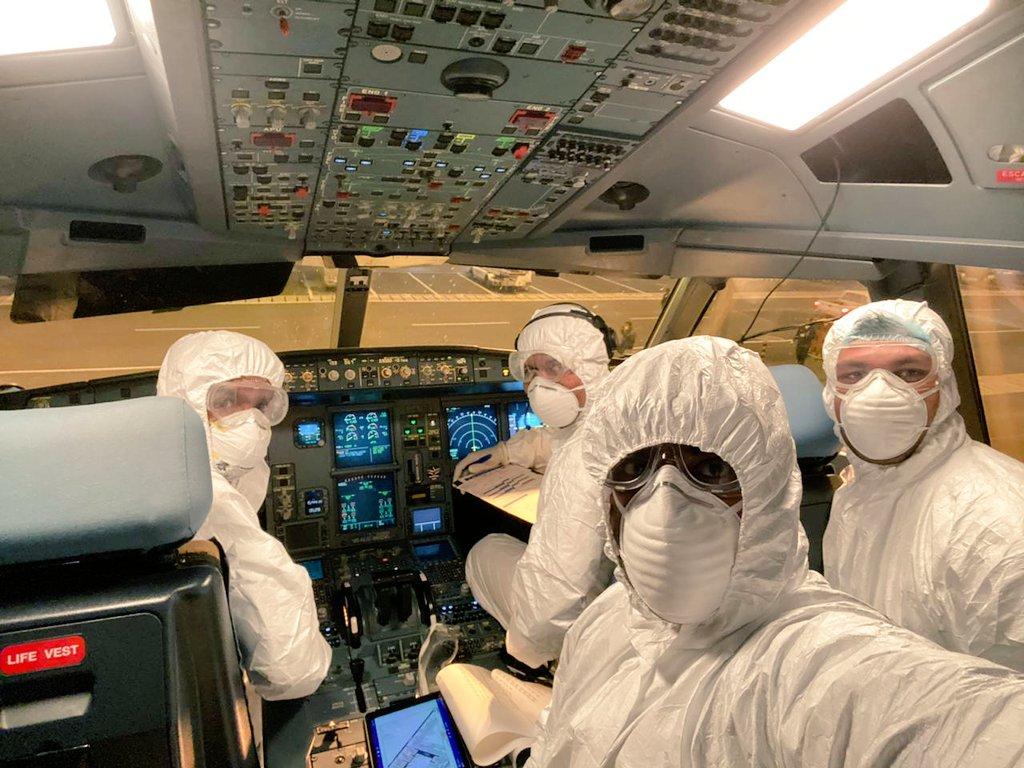Governments Step Up China Travel Restrictions As Coronavirus Spreads

Multiple countries including Singapore and the Philippines are denying entry to travelers who have recently visited China in a bid to limit the spread of the novel coronavirus outbreak after the World Health Organization declared it an international public health emergency.
The new travel bans, which in some cases are limited to mainland China and in others apply to Hong Kong, Macau and Taiwan too, come in addition to widespread China flight cancellations already put in place by international airlines.
Since midnight on Feb. 2, Singapore’s government has blocked new visitors with travel history in mainland China in the past 14 days, also banning them from transiting via Singapore to other countries.
Singapore residents and those with long-term passes such as student visas who have been to China in the past 14 days will be allowed to enter but must stay home and avoid social gatherings and crowded places, the government said.
Singapore Airlines will still fly to Beijing, Guangzhou and Shanghai but with reduced frequencies. However, its LCC subsidiary Scoot will suspend all mainland China flights starting Feb. 8 and has already stopped flights to Wuhan.
The Philippines has barred international passengers who have been to China, Hong Kong and Macau recently. Flag carrier Philippine Airlines will be reducing frequencies to China by at least 50%. Cebu Pacific will be suspending all flights to Mainland China until Mar. 29, with the exception of Hong Kong and Macau.
Indonesia on Feb. 2 also began blocking those who have traveled from or through China within the past two weeks.
Vietnam initially banned all flights from mainland China, Hong Kong, Macau and Taiwan on Feb. 2, but the country’s aviation regulator later changed the restriction, allowing flights from Hong Kong, Macau and Taiwan.
The Malaysian government has not banned flights to and from China, except those originating from the Hubei province. However, the Eastern Malaysian states of Sabah and Sarawak have put their own blocks on Chinese flights. Malaysia Airlines has no plans to change its service to China. AirAsia has suspended its Kota Kinabalu-Wuhan route, and has yet to make a decision on other China flights.
Currently, the Hong Kong administration is only preventing passengers from Hubei province from entering the territory.
Cathay Pacific said it will reduce capacity by at least 50% until the end of March, while Cathay Dragon has already suspended flights to five Chinese cities. A South China Morning Post report said Cathay staff were threatening to go on strike if the carrier did not cease all flights to mainland China. Cathay Pacific still operates three daily flights to Shanghai and Beijing.
Taiwan is only restricting entry to Hubei residents. Although it is relatively unaffected by the virus outbreak, the World Health Organization recognizes Taiwan as part of China and some countries have included Taiwan in flight bans. Italy, for example, has blocked Taiwanese carriers, causing China Airlines’ Taipei-Rome service to be suspended. The impending launch of EVA Air’s Rome service is also left in limbo as the carrier evaluates the situation.
The Indian government is suspending travel to India on e-visas for anyone with a Chinese passport, or applicants of other nationalities residing in China. The government has warned that anyone returning from China, or who has traveled in China since Jan. 15, could be quarantined.
Australia announced on Feb. 1 that foreign nationals will not be allowed entry from China for 14 days after leaving or transiting through that country. Australian citizens and permanent residents will not be affected by the restriction but must “self-isolate” for 14 days after their return. The New Zealand government followed with similar measures. All arrivals into New Zealand will be manually processed to aid screening, instead of using e-gates. Australian and New Zealand airlines have stopped their China flights.
Japanese authorities are blocking foreign arrivals from Hubei province, according to local media. All Nippon Airways (ANA) and Japan Airlines (JAL) were not yet suspending flights to China as of Feb. 3, although ANA has stopped its Wuhan flight. JAL said about 25% of bookings on its China flights for February have been canceled in the past 10 days.
The Russian government has suspended all airline operations to China from Feb. 1, after it closed the land border with the country in the Far East region. Exceptions are direct flights between Moscow and Beijing, Guangzhou, Hong Kong and Shanghai, which are operated by Russia’s Aeroflot Airline, as well as Air China, China Eastern Airlines, China Southern Airlines and Hainan Airlines.
S7 Group also said in a statement that the idea of repatriating Russian citizens from China via Moscow was “completely inappropriate” with the main traffic between the two countries coming from Siberia and Far East cities. “If we look at the sales data through Feb. 20, we can see that the number of passengers traveling from Siberia is twice more than from Moscow. In cases where there is an infected passenger on a flight, the number of potential contacts during the trip via Moscow may increase,” S7 Group said.
In the UK, the Foreign Office has been advising against all but essential travel to mainland China since Jan. 28, advice mirrored by the French government. Six coronavirus cases have been confirmed in France. Both countries have organized flights to repatriate citizens from Wuhan.
Lufthansa Group said Feb. 3 that it would extend a suspension of its Lufthansa, Austrian Airlines and SWISS flights to Beijing and Shanghai until Feb. 28. The group had previously suspended flights until Feb. 9. Nanjing, Shenyang and Qingdao will not be served until the end of the winter timetable on Mar. 28, the group said. Flight operations to and from Hong Kong will continue as planned. Lufthansa Group operates 54 regular weekly connections from Germany, Switzerland and Austria to the Chinese mainland, including Beijing, Nanjing, Shanghai, Shenyang and Qingdao as well as 19 weekly connections to Hong Kong.
SWISS also said Feb. 3 that a suspected case of coronavirus in an off duty cabin crew member on SWISS flight LX15 from JFK to Zurich had not been confirmed and all the cabin crew had been allowed to leave the aircraft, which would be cleaned and returned to flight operations.
In China, Hainan Airlines has reduced services the most among the country’s four largest airlines in response to the outbreak, suspending 56% of domestic and international flights, according to aviation data firm Variflight. Across the Chinese industry, only Shandong Airlines, at 61%, has cut more flights. Asia’s largest carrier, China Southern Airlines, has cut 40% of flights, Variflight says, estimating the situation as of late evening Jan. 30. Air China and China Eastern Airlines have cut 26% and 20% respectively. Chengdu Airlines is the least affected, maintaining all but 1% of flights. China’s largest budget carrier, Spring Airlines, has suspended 18% of its flights.
All North American carriers that fly to China—including Air Canada, American Airlines, Delta Air Lines and United Airlines—have suspended their operations in the country until Spring, after governments in the U.S. and Canada raised their warnings to the highest levels and enacted temporary travel bans to protect against the spread of the deadly coronavirus.
Research by Ryan Wang











